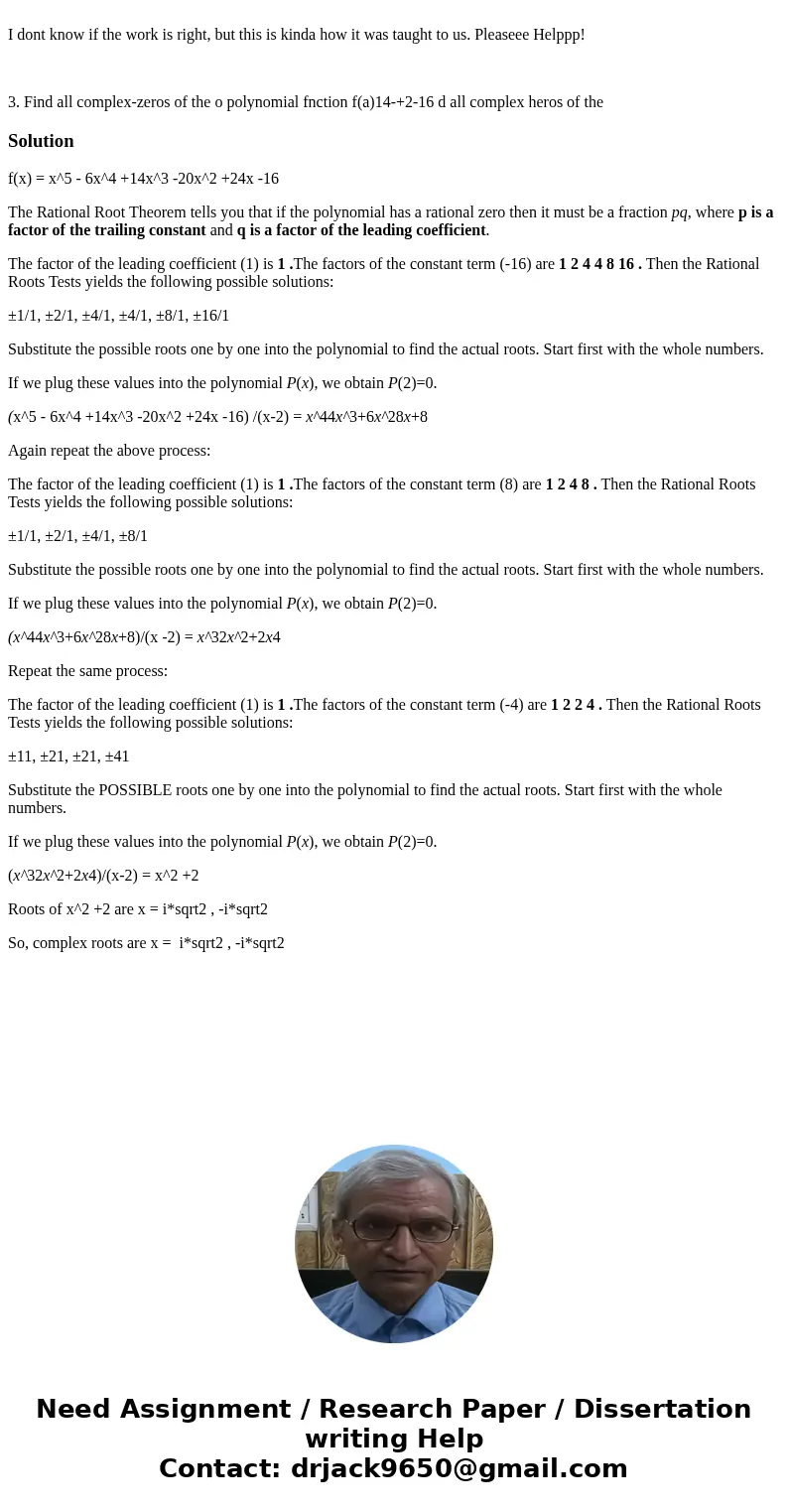I dont know if the work is right but this is kinda how it wa
I dont know if the work is right, but this is kinda how it was taught to us. Pleaseee Helppp!
Solution
f(x) = x^5 - 6x^4 +14x^3 -20x^2 +24x -16
The Rational Root Theorem tells you that if the polynomial has a rational zero then it must be a fraction pq, where p is a factor of the trailing constant and q is a factor of the leading coefficient.
The factor of the leading coefficient (1) is 1 .The factors of the constant term (-16) are 1 2 4 4 8 16 . Then the Rational Roots Tests yields the following possible solutions:
±1/1, ±2/1, ±4/1, ±4/1, ±8/1, ±16/1
Substitute the possible roots one by one into the polynomial to find the actual roots. Start first with the whole numbers.
If we plug these values into the polynomial P(x), we obtain P(2)=0.
(x^5 - 6x^4 +14x^3 -20x^2 +24x -16) /(x-2) = x^44x^3+6x^28x+8
Again repeat the above process:
The factor of the leading coefficient (1) is 1 .The factors of the constant term (8) are 1 2 4 8 . Then the Rational Roots Tests yields the following possible solutions:
±1/1, ±2/1, ±4/1, ±8/1
Substitute the possible roots one by one into the polynomial to find the actual roots. Start first with the whole numbers.
If we plug these values into the polynomial P(x), we obtain P(2)=0.
(x^44x^3+6x^28x+8)/(x -2) = x^32x^2+2x4
Repeat the same process:
The factor of the leading coefficient (1) is 1 .The factors of the constant term (-4) are 1 2 2 4 . Then the Rational Roots Tests yields the following possible solutions:
±11, ±21, ±21, ±41
Substitute the POSSIBLE roots one by one into the polynomial to find the actual roots. Start first with the whole numbers.
If we plug these values into the polynomial P(x), we obtain P(2)=0.
(x^32x^2+2x4)/(x-2) = x^2 +2
Roots of x^2 +2 are x = i*sqrt2 , -i*sqrt2
So, complex roots are x = i*sqrt2 , -i*sqrt2

 Homework Sourse
Homework Sourse